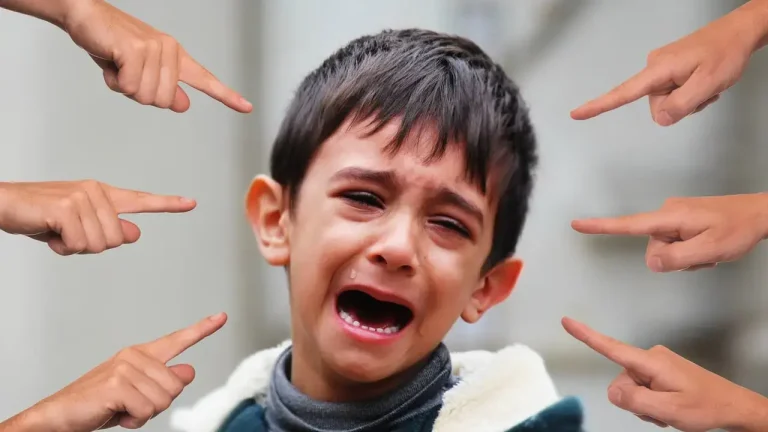How to Set Limits for Your Children
Good education and upbringing must be framed by setting limits for children; not doing so can lead to behaviors such as disrespect or disobedience. The path of educating children is not easy, parents are faced with new challenges every day: but establishing rules and limits is a good start to improve this teaching process.
Limits should be set even from early childhood, that is, between the first and third year of life. Doing this will greatly improve the way in which the child later receives new limits that are set according to their age. (See Also: Anger Management in Children )
Tips for Setting Limits for Children and Not Failing in the Attempt
Clear Boundaries
This is key for our children to understand what their parents want, especially during early childhood. Generalized phrases such as “behave” confuse children, so when setting limits for children, you should be as specific as possible; for example: “don’t shout,” “we’re going to the park for just 30 minutes,” “you must pick up your toys,” “don’t hit your brother,” or “you mustn’t hit people,” etc.
Clear limits must be established with precise orders and short sentences. They must be clear about what you want the child to do or not do. They must be established even from the first years of life, first because they are necessary to safeguard the integrity of the child, and second because when the child is older he will already be accustomed to respecting the limits and rules.
Constant and Coherent Parents
This is key to successfully establishing limits. First of all, in a home where there is a mother and a father, both must be in sync with the rules they set. Secondly, limits must be met every day; there cannot be a day off, because then children will resort to any excuse not to comply with them.
Additionally, you should speak to children with authority and firmness, but without shouting, rudeness or aggression; for example, say “go to your room right now” or “stop throwing your toys.” With a firm tone, you express that they must comply with the order immediately. (Read also: Saving for your children’s education)
Give Options
Education is a power struggle between what parents want and what their children want. In this process, negotiations and possibilities are good. You must establish limits, but also give your child the opportunity to choose. This helps him feel that he has a little more power and control and better accepts the imposed limits.
For example, you need to organize your toys, so you can say: “It’s time to organize the toys, do you want to do it by color or by size?”, “You have to get your clothes ready for tomorrow, do you want to choose the clothes yourself or should we choose them together?”, “It’s time to go to bed, do you want to brush your teeth or put on your pajamas first?”, etc.
Switch to Positive Phrases
It’s a very subtle but helpful change, but our brains may have a harder time adjusting to speaking positively than negatively. This involves asking our children to do certain things, but not speaking negatively. That is, not telling them “don’t shout,” but rather telling them “speak softer.”
Explain Why You Set Limits
When children understand why their parents set limits and rules, they tend to accept them better, while creating their own values and reasoning. For example, when they are in early childhood, limits generally revolve around the child not getting hurt. When explaining to them that they should not go down the stairs alone because they can fall, children can understand that it is to avoid an accident and they will also manage to associate that they should not do other dangerous activities alone.
Disapprove of Behavior, but Never of Your Child
Saying “what you did was wrong” is not the same as saying “you are a bad person.” Disapproval should always, in all circumstances, be directed at the child’s behavior, but NOT at the child. It is not about not disapproving if he did something wrong, but about not showing rejection towards him as a person, but rather towards his behavior in that situation.
This is very important to not destroy or affect our children’s self-esteem. We are all human beings and we make mistakes, but that does not make us bad people. In fact, showing your children their bad actions will also help them learn to recognize your mistakes and work on them.




